best vpn new zealand
The best VPNs for New Zealanders have no logging policy, strong encryption, and secure connection. They keep your identity & activity online anonymous, away from governmental surveillance.
The #1 VPN for New Zealand is definitely ExpressVPN – with fast speeds, great security, a huge number of server locations – all starting from NZ$11.20 /mo!
We’re tired of nosy people peeking into our internet activity, hence we have been buying and testing VPN providers. For New Zealand, we’ve shortlisted the top 7 VPNs with excellent security features to keep you safe on the internet, based on results from DNS and WebRTC leak tests.
Top VPN for New Zealand
- ExpressVPN – Best premium VPN
- Surfshark – Best cheapest VPN
- NordVPN – Best VPN for speed & privacy
- CyberGhost – VPN with most servers
- TorGuard – Best VPN for torrenting
- IPVanish – Best VPN for multi-device support
- FastestVPN – Best VPN for streaming services
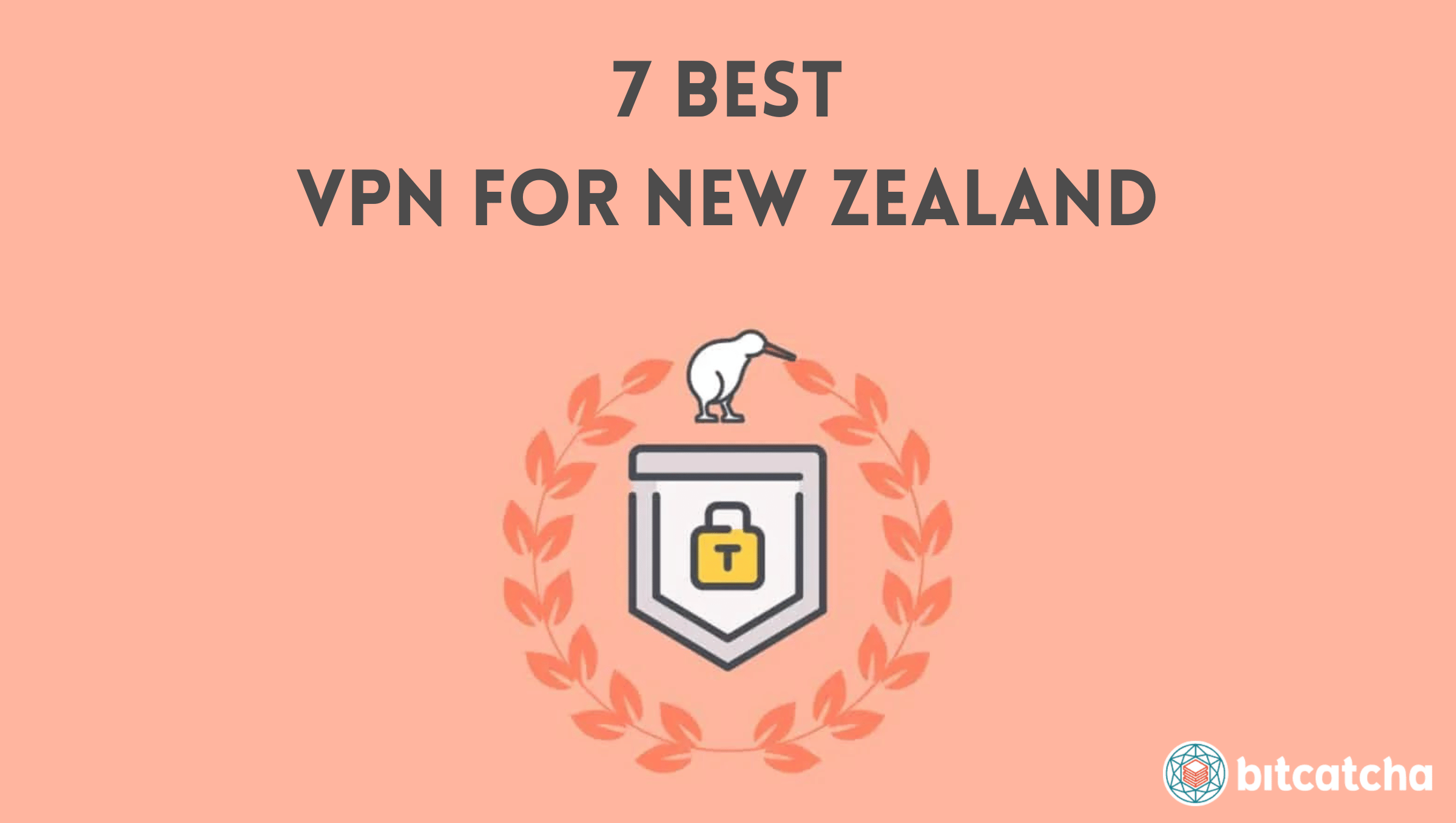
Before we look at the VPN speed results for New Zealand, do note that my ISP-advertised speed is 500Mbps. However, this is theoretical and many things affect actual speed, including quality of service, distance to server, and more.
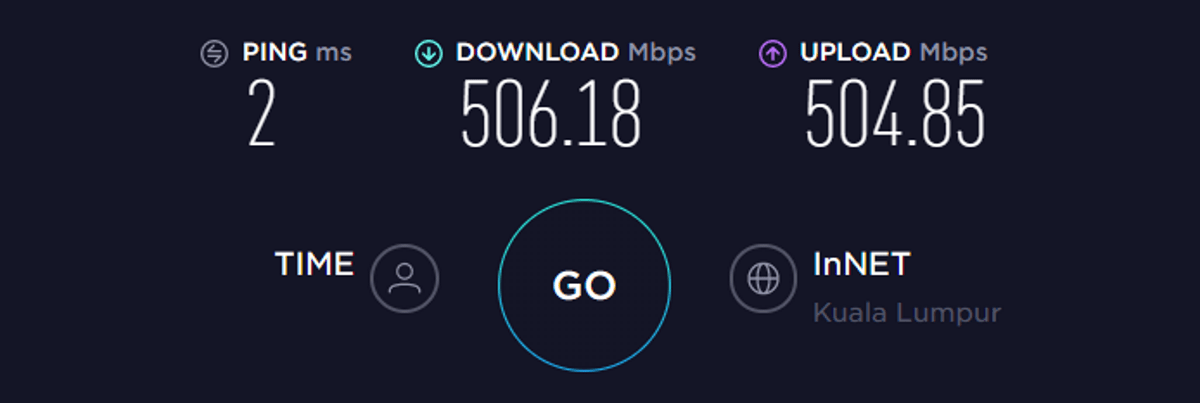
As a baseline, I conduct a speed test to local servers to gauge the current quality of my line. This will serve as a slightly more accurate comparison for us to see what else might be potentially affecting VPN performance as I test the various brands.
Due to my physical location being in Malaysia I normally get better speeds connecting to test or VPN servers around the Asia Pacific region. If I were to connect to a North American server for example, speeds will usually be slower because of the distance involved.
note
The New Zealand prices in this article are calculated using an exchange rate of 1 USD to 1.35 NZD.

1. ExpressVPN
https://www.expressvpn.com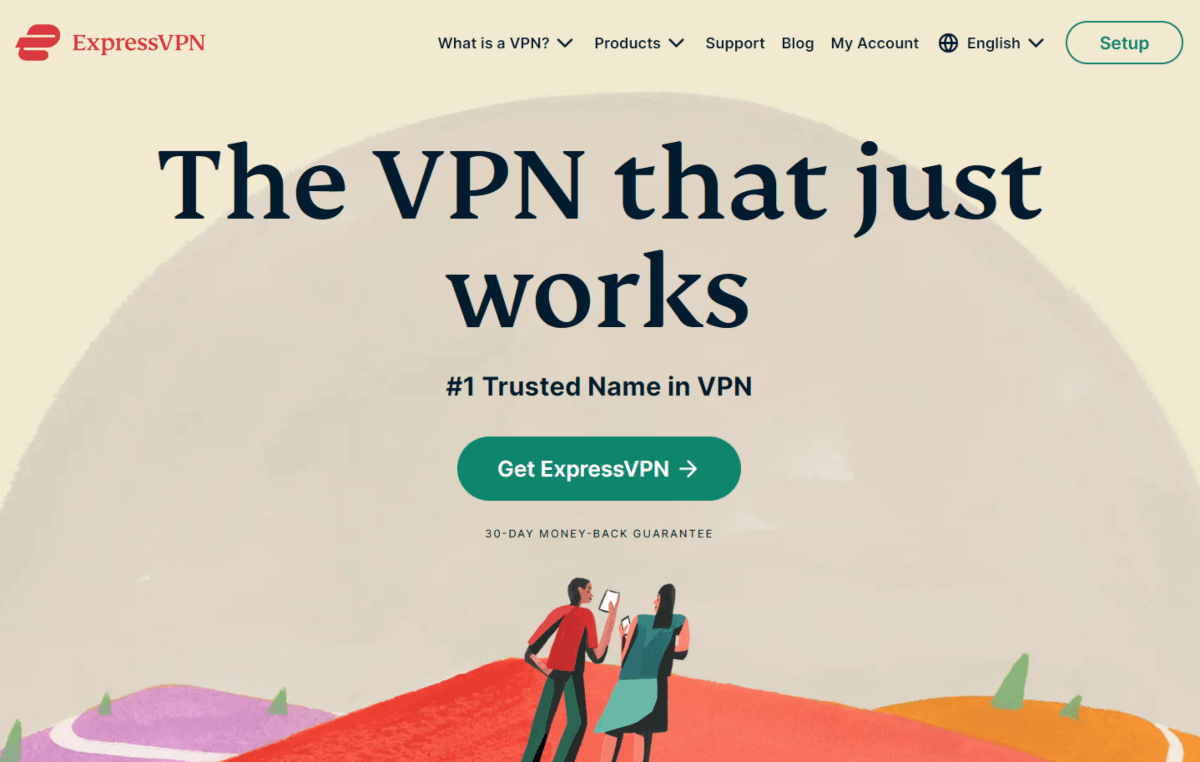
One of the best VPN services I have ever tested, ExpressVPN has so far been my top pick no matter which country I am ranking it for. It has a massively broad range of server locations and many servers. Even better, it is based out of the British Virgin Islands which is lax in its data retention laws.
I have tested the service comprehensively and have no hesitation in recommending them as the top VPN service provider for New Zealanders. ExpressVPN is stable and allows access on a good range of devices as well.

(See full speed test result)
As an idea of how good it gets, I compared my default line speed without a VPN to an ExpressVPN covered test to the same location. With ExpressVPN on and connected to a server in New Zealand, I managed to show a solid 76Mbps downstream speed.
Read our complete review on ExpressVPN why it’s our #1 choice!

2. Surfshark
https://surfshark.com/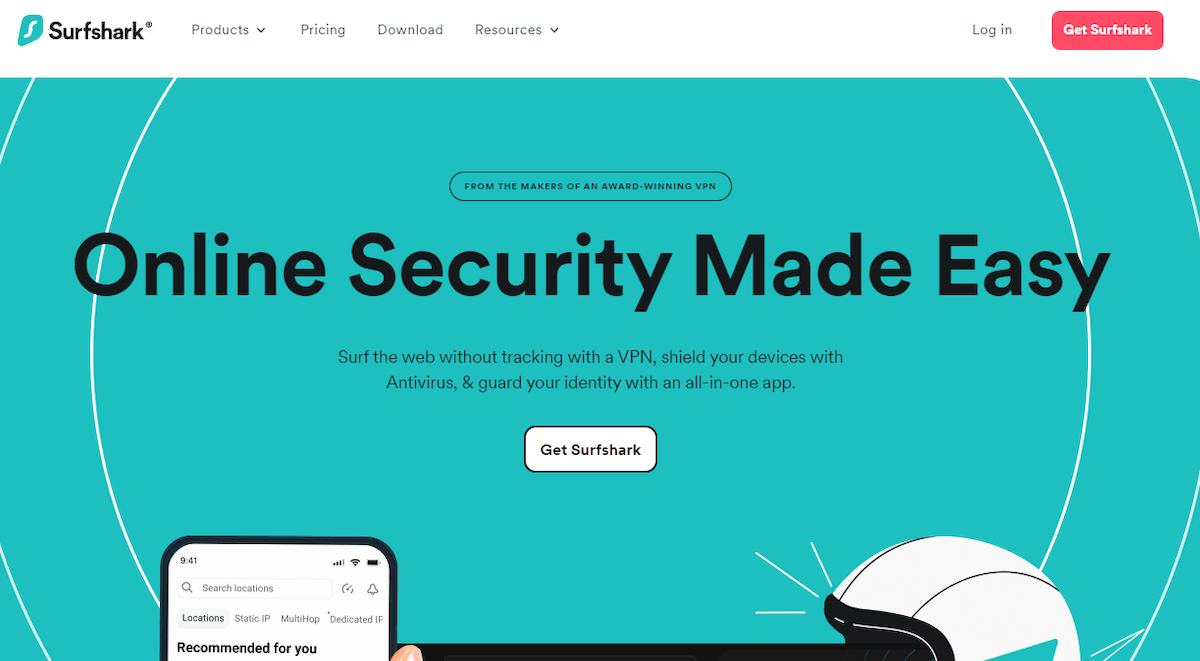
Surfshark is an excellent choice for New Zealanders due to a couple of reasons. Unlike many VPN service providers, it does place an equal emphasis on servers in the Australasia region rather than a pure US-EU focus. That means you will have more servers closer to your home country to look forward to.
Since it is new, there is also hope that it won’t clutter up its service by offering unwanted extra features. This makes it very focused on providing an excellent core service built on consistency and security, rounding up well in overall performance.
For the price point that Surfshark comes in at, this makes it easily one of the top 3 for New Zealand. There really isn’t anything much that can argue with great prices and superior performance. To rise up in the ranks a little, all Surfshark needs to do is put in a little more time to build trust with its users – then we’ll see where that leads them!

(See full speed test result)
As one of the top three best VPNs for New Zealand, Surfshark meets speed requirements very well. The best thing about this VPN service isn’t blazingly fast speeds, but good speeds across the board – no matter which server you choose.
Perhaps the only slight downside is that despite supporting P2P on their servers, performance in file sharing doesn’t really seem that much up to par despite good overall speeds.
Learn more of its excellence at our thorough review on Surfshark!

3. NordVPN
https://nordvpn.com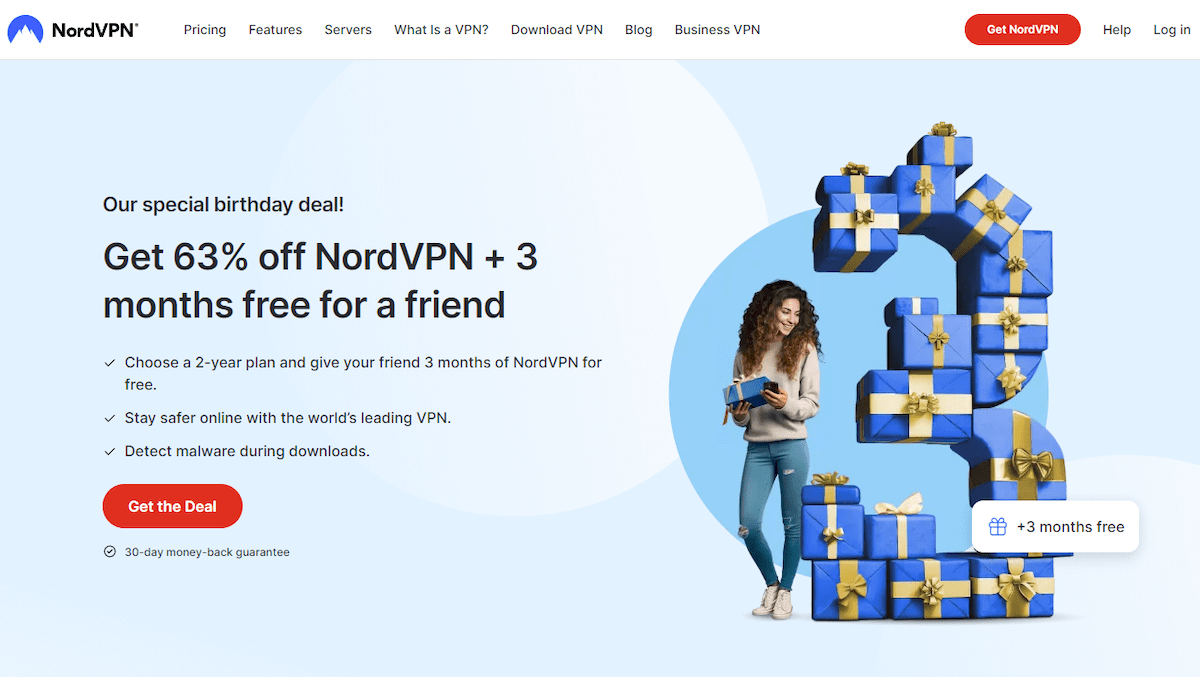
NordVPN takes a high ranking place in our Best VPN for New Zealand list for many reasons. One of the first is that they are based in Panama, which is also a good place to be for VPNs. Aside from that, NordVPN has a sterling reputation and is another VPN provider that has a huge number of servers in many countries.
Their strict no-logging policy combines with 256-bit military grade encryption and great price plans to offer almost anyone a deal that is hard to resist. Perhaps the most compelling argument for NordVPN though is their excellent coverage area which extends across over 5,000 servers worldwide.
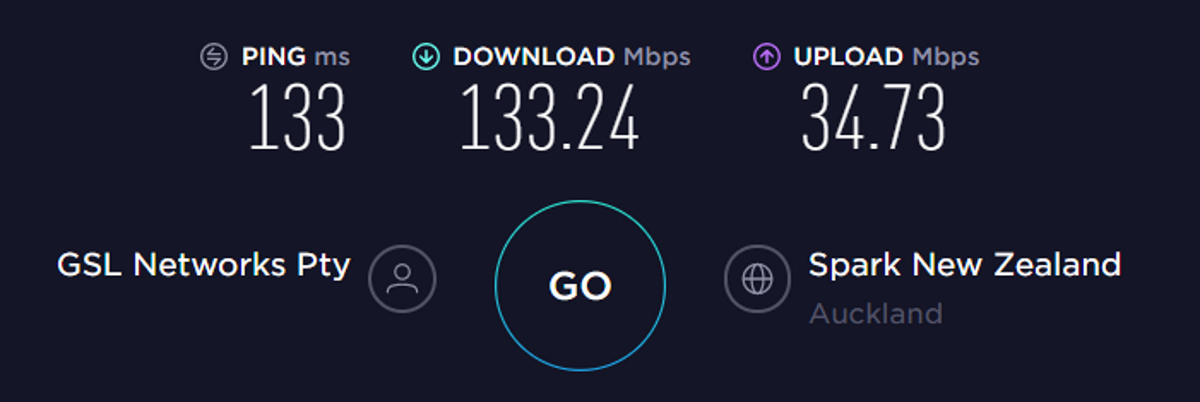
(See full speed test result)
With a strong 133 Mbps downstream speed we are certainly seeing the quality of the NordVPN network in New Zealand. As a side note, most lesser VPNs wouldn’t even bother with an in-country presence here and rely on Australia servers to do the job.
Read our in-depth review on NordVPN to learn more!

4. CyberGhost
https://www.cyberghostvpn.com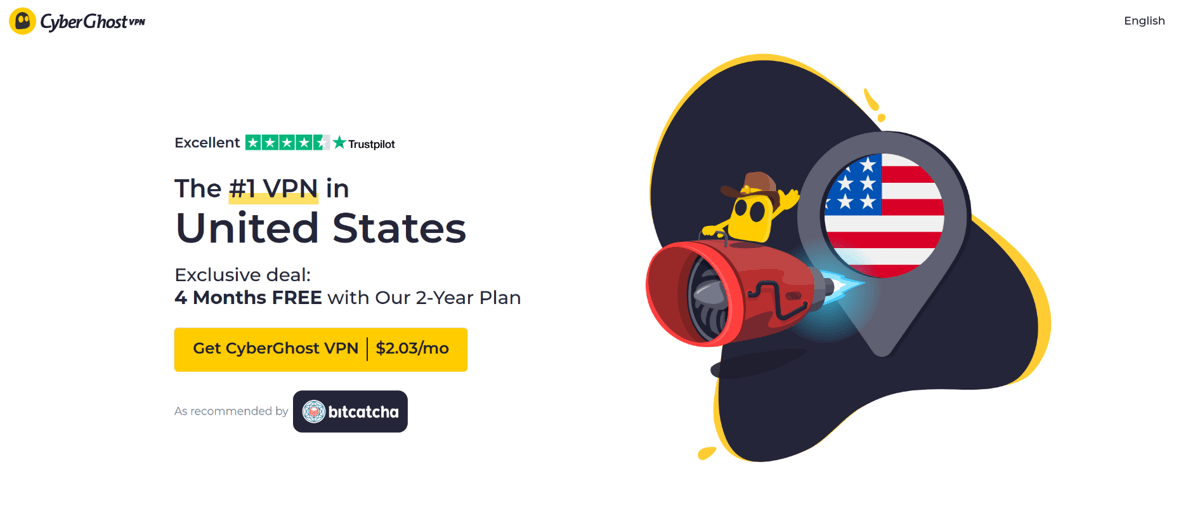
CyberGhost has seen a huge surge in performance over the past year. Speeds have shot through the roof, possibly as a result of the massive number of servers they now have. Did you know that CyberGhost servers are now in over 90 countries around the world? That’s practically half of all the countries that exist!
Add to that their very upbeat and distinctive marketing and you will have as close to a winner as you possibly could. I know that I certainly am impressed with how they have done of late. Certainly, these improvements do credit to their already established name in the VPN industry.
For New Zelanders, signing up with CyberGhost should be a no-brainer since they already have such strong local performance. That should serve as a strong indicator of what is to come if you connect anywhere else at all.

(See full speed test result)
Although most of their servers in the past were highly clustered around the EU zone, the serious expansion they’ve undergone has benefitted the Asia Pacific rim. Coverage and speeds have much improved in a very short time.
The proof was in the stunning 178 Mbps speeds we managed to get while on an Auckland-based server. Upstreams were a little more limited but let’s be honest – who cares about that.
See our full review on CyberGhost to see why it’s one of our top picks!
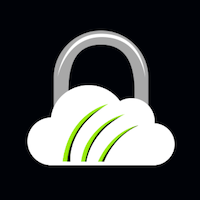
5. TorGuard
https://torguard.net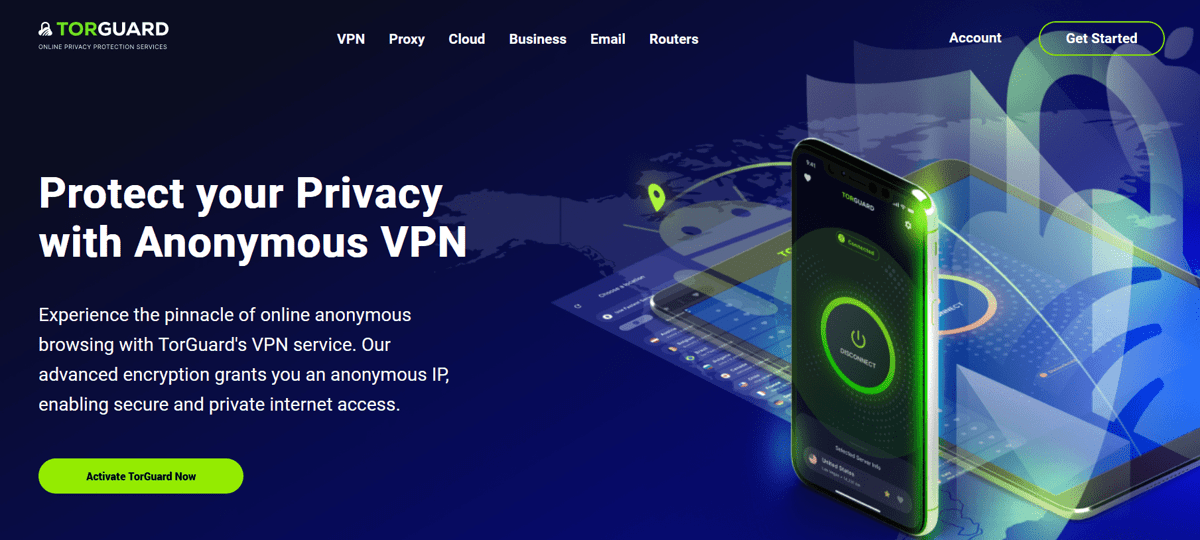
One of the most important deciding factors in TorGuard’s placement is that it is a very P2P-friendly VPN service provider. There isn’t a lot of bling on the user-facing side, but it is remarkable in performance.
There is one key difference between TorGuard and many competitors in that it allows you to choose what level of encryption you prefer. This means that for P2P users, you can turn down encryption a notch and enjoy faster torrenting speeds anytime!
Aside from that, TorGuard has many other redeeming qualities, such as stable speeds, multi-platform capability and the ability to bypass VPN blockers. A downside is that unless you fork out extra for a residential IP, use of this VPN with Netflix is very dodgy.
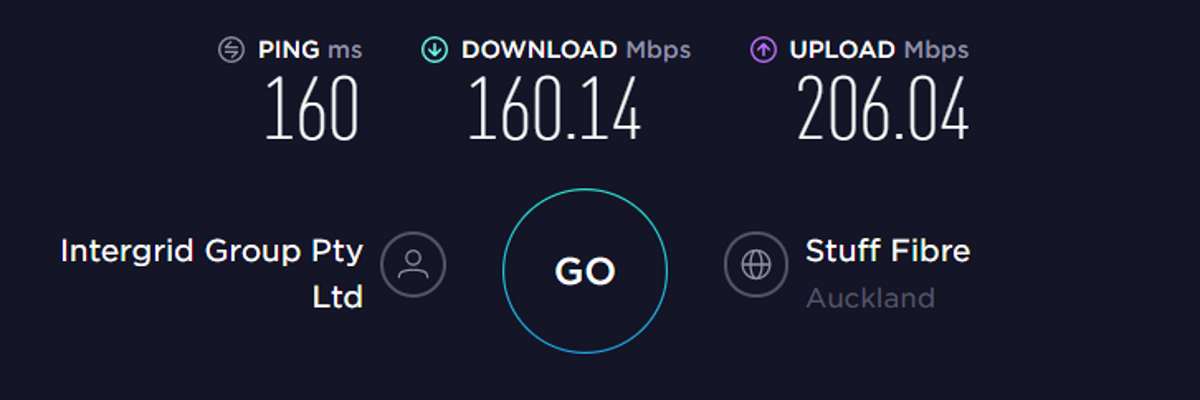
(See full speed test result)
As one of the top three best VPNs for New Zealand, TorGuard of course met certain speed requirements. This showed in my test result for it from an Auckland-based VPN server and New Zelanders also have close proximity to their Aussie neighbours’ servers as well.
The only downside is that for younger users who are used to the sleekness of modern applications, the TorGuard interface will look like a dinosaur emerging out of the mist through the reeds.
Read our thorough analysis on TorGuard for more information!

6. IPVanish
https://www.ipvanish.com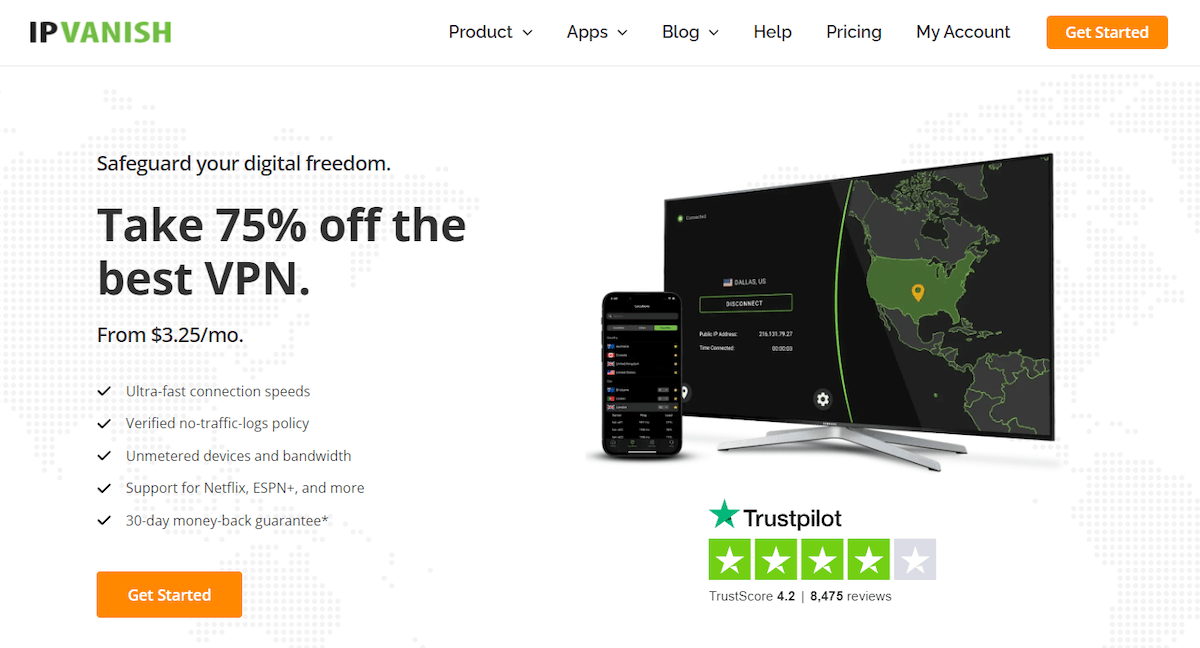
IPVanish has been in the market awhile and it does have a loyal stream of followers. Unfortunately, while we’ve noted its excellence in some locations, the Australia – New Zealand region doesn’t seem a good place to be for their fans.
In the past the company has also been embroiled in some controversy over the handling of user logs, but with new owners we hope that has become a thing of the past. Moving those incidents aside, they remain a VPN giant in the field and (mostly) boast speeds that are pretty decent.
Luckily for that, since if you have any complaints about their speed, there isn’t much you can do as they force 256-bit encryption on everyone without exception. While that doesn’t sound like a good thing – it actually is since you can lower your security settings unknowingly.

(See full speed test result)
Speed-wise, I have to say that 66 Mbps is not an awful speed to get, but it is not really what I expected as well. Having served the market for so long I would have expected them to boost performance across the board and not simply in core locations.
Still, the speeds are very useful and good for almost anything except high speed downloads. If you get fed up with these speeds, try connecting to nearby locations with good speed such as Singapore or Australia.
Read our in-depth review on IPVanish to find out more!

7. FastestVPN
https://fastestvpn.com
When I first came across FastestVPN, the bold statement their name made was unfortanate since they were pretty far from it. Today, the service has been much revamped and despite suffering from a poor app experience, it has decent speeds.
Unfortunately, their performance in the New Zealand area isn’t the best it has to offer and if you want to coax more out of it, I’d suggest trying an out of country server – perhaps in Australia.
Still, with a price tag that is nearly as low as it ever gets (free doesn’t count!), they do offer a proposition that is hard to resist. Their more limited network can be available to you for as little as under NZ$2/mo, which is really something.

(See full speed test result)
Speeds on FastestVPN when connected to an Australia-based server for me exceeded 15 Mbps. That is a decent number but far from the blazing speeds offered by the top contenders on this list.
At least the basics are in play – good encryption, access to Netflix US content, plus the usual privacy standards.
Head over to our FastestVPN review to learn more!
What Is A VPN?
Virtual Private Network, or VPN, are private networks of servers. They help users increase digital privacy while adding additional layers of security at the same time. They can be used by both businesses and individual consumers.
In a business context, VPNs are often established by companies or specialized service providers to enable secure access to confidential information for remote employees. From an individual consumer or small business perspective, VPNs are more easily accessible and affordable.
The primary goals remain privacy and security, achieved by routing data through secure VPN servers and masking the user’s origin and device details. Additionally, VPNs encrypt data to prevent unauthorized access or theft during transmission.
Why Use A VPN In New Zealand?
To be honest when the thought of the need for VPN use in New Zealand came across my desk, I was a little flabbergasted.
After all, it is one of the countries in the world where freedom is highly rated, with “Freedom House rating New Zealand an eye-raising 99/100 on their freedom scale in 2022”.
Yet thoughts of what may lie beneath the surface prompted some research and surely enough, once I started digging out came the skeletons in the closet. Well, some of them anyway.
From illegal government surveillance to providing intel to US intelligence agencies, New Zealand is a hotbed of covert activities – against its own residents.
While it is true that the Internet there isn’t known to be censored, it is still disturbing that there is not just one, but multiple sources of Internet surveillance. Even worse is the fact that the government is making moves that indicate it thinks these activities are necessary and hence, legalizing them.
Is it time for residents of New Zealand to look for the right VPN service?
GCSB Has Acted Outside The Law
The Government Communications Security Bureau (GCSB) is what passes as the internal security arm of New Zealand. That fact alone makes it sound a little sinister and recalls images of the Soviet NKVD or similarly dark agencies.
Yet the scope of its work sounds innocent enough on paper and that is to defend the country’s national security through information collection and analysis. Unfortunately, as with many intelligence agencies, the GCSB has been known to work outside the law.
For example, it was known to have illegally spied on Kim Dotcom (founder of Megaupload), who was residing in New Zealand. Even worse was the fact that due to this case, it was discovered that GCSB didn’t understand its own law and had as a result also illegally spied on 88 people, reported by NZME entitled “GCSB ‘had no idea’ spy gear was still targeting Kim Dotcom”.
By law, GCSB isn’t allowed to spy on New Zealand residents. To compound all of these matters, after GCSB had claimed to have stopped surveillance activities on Kim, it was later discovered that their equipment continued to operate – operated by the US National Security Agency (NSA) which was involved in the case.
This scenario raises a few issues. The first is that a New Zealand government agency either was ignorant of its own country’s laws or decided to violate them. Secondly, there seemed to be little compunction about sharing intelligence on the country’s own resident with a foreign agency.
New Zealand Can Legally Spy On Residents
What is described above can only be taken to be the basis for this next segment which is that in May 2013, the government made amendments to laws relating to GCSB powers, allowing the agency to legally collect information from all New Zealanders.
GCSB would also be allowed to pass on any or all this information to other government department, meaning that the entire government could legally obtain any information it wanted at any time. Despite protests from many factions including the NZ Law Society and the Human Rights Tribunal, the law was eventually passed, effectively turning New Zealand into a potential police state.
Despite the government’s assurances that wholesale surveillance on residents was not being carried out, the fact was disputed as part of the Snowden revelations.
Allegations Of Southern Cross Cable Tapping
All data on the Internet flows through a series of massive data cables which are routed through various points around the globe.
The major point of contact for New Zealand is Southern Cross Cable. Since 2013, there have been various allegations of spy agencies tapping into the Southern Cross Cable.
The New Zealand Herald once reported that Southern Cross Cable has in the past asked the NSA to pay them for mass surveillance of New Zealand internet activity.
In 2014, allegations were made that interception points were being made on the cable, news reported by Glenn Greenwald and Ryan Gallagher on September.Tthe government of New Zealand has denied any such occurrences, as per the news report entitled “Govt called to account for spy claims”.
Is VPN Legal In New Zealand?
While this may be a legitimate concern, there are only a handful of countries around the world which has outright banned the use of VPNs.
These are usually the countries with more draconian laws such as Iraq and North Korea. Even China and Russia have only carried out partial bans.
Thankfully for New Zealanders or visitors to the country, use of a VPN there is still perfectly legal. However, do note that while the service itself may be legal, what you do on it also has to be legal as well.
For example, if you carry out P2P activities and download copyrighted stuff then technically you are still liable for that. What the VPN does is shield those activities. The crux therefore is to either use a VPN for strictly legal activities or to find one which cannot be compelled by the New Zealand government to hand over user activity logs.
What Makes A Good VPN For New Zealand?
- Privacy and anonymity With the more obvious horror stories I’ve shared above fresh in your minds, it’s probably a good time for me to suggest that it’s a really good idea to focus on the privacy and anonymity aspects of a VPN for users in New Zealand.With both the government as well as private industry coming after users, a VPN needs to be able to ensure that your data and activities can be kept exactly the way it should be – private.One of the best ways to ensure this is to keep an eye out for VPNs that not only have strict no-logging policies but that are also based out of countries that are laxer in their data retention laws. This certainly excludes countries in the Five Eyes and Fourteen Eyes jurisdiction.
- Speed and stability With an average fixed line broadband speed of 129.97 Mbps in New Zealand (as of August 2020), there should not be a major issue with VPNs since almost all top-tier VPN service providers should be able to manage this benchmark.
- Security The security spiel on VPNs is the same for New Zealand-based users as everywhere else. The ideal balance is known only to you, as a user. Do you opt for 256-bit encryption at the risk of lower VPN speeds or are you willing to lower that bar for increased speed?The point in question here is – does X VPN service provider offer you the choice of adjustable encryption rates? That is probably what you need to ask if this is an issue for you.
- Geolocation spoofing Being on the other side of the world from the US, New Zealand-based users don’t get access to US-restricted Netflix content. This is one of the reasons why users around the world use VPNs – for geolocation spoofing.
- P2P support This really isn’t a priority for VPN users in New Zealand since P2P has largely been ignored here. However, it is always good to have especially with the knowledge that the government is starting to crack down on certain things like android tv boxes.Look out for VPNs that have P2P traffic guidelines clearly spelt out in their terms of service, such as TorGuard or NordVPN.
What Can I Use A VPN For?
By their very nature, VPNs are intended to help mask your identity and secure your data. However, they also come along with many other redeeming capabilities. Let’s consider how they can be used:
- Stream geo-blocked content
- Bypass ISP censorship
- Avoid tracking
- Torrent safely
- Establish safer connections to internal networks
Find out more use case of VPNs here.
What Are The Limitations Of VPN Services?
While VPNs are awesome, there do remain some limitations that you need to pay attention to. They aren’t blank cheques that will allow you to do anything you want online without heed. For instance, they:
- Don’t give access to hidden Dark Web sites VPNs only protect your access to the net. To get to Dark Web sites, you’ll still need special tools such as the Tor Browser, a search engine like DuckDuckGo and other stuff as well.
- Don’t prevent phishing attacks Since phishing attacksmostly prey on people, the technology behind it can be difficult to guard against. Using a VPN isn’t a substitute for common sense, so don’t leave yours at the door when using one.
- May get blocked by some sites Some websites are especially sensitive to VPN usage. This is especially true for web apps or sites that belong to financial institutions. You may find yourself denied access to these sites if they detect you’re on a VPN connection.
Why Use VPN Over Tor Or Proxy?
While aiming to achieve many similar things, VPN, Tor, and Proxies are not really the same thing. You might be able to get away with using either for some purposes, but the technology is fundamentally different.
The Onion Router, or TOR, is more of an anonymizer that works by routing packets of data though a massively conflagurated network of hubs and nodes. It does this in the hope of making things as difficult as possible to trace the origins of the data. It’s free to use, but the way it’s built makes it very slow to use. At the same time it does not offer the same level of protection to either the source or the data itself that a VPN service does.
Proxies only serve to route your connection through a third party server. It doesn’t mean your data is safe, especially since the provider of the proxy server itself can be shady at the best of times. It is possible to combine these services with a VPNs service to improve your overall security profile.
Honestly though, in most cases, simply using a legit VPN is sufficient.
Why Is VPN Essential For Preventing Phishing And Spoofing Attacks?
VPN is essential for preventing phishing and spoofing attacks because a VPN encrypts your internet traffic and hides your real IP address. Phishing are deceptive attempts by cybercriminals to steal sensitive information by pretending to be legitimate entities through emails and websites. Spoofing is a cyberattack where a malicious actor disguises their identity by impersonating a trusted source to make their fraudulent actions. By traffic encryption and IP address masking, attackers cannot track your activities and hence reduce the risk of phishing and spoofing.
What Role Does A VPN Play In Website Management?
A VPN plays a crucial role in website management by encrypting your connection to hosting panels, preventing unauthorized access to sensitive data such as login credentials and website settings. It protects administrators from cyber threats like man-in-the-middle attacks when working remotely or on public networks. VPNs also hide your IP address, adding anonymity, which helps prevent targeted attacks on your website. In short, a VPN secures both the management process and the website itself from vulnerabilities.
Can VPNs Prevent Data Breaches And Ransomware Attacks On Websites?
No, VPNs cannot prevent data breaches or ransomware attacks on websites directly. A data breach occurs when unauthorized individuals access a server to steal sensitive data, while ransomware locks systems and demands payment for access. VPNs secure the connection by encrypting data in transit but do not protect servers from vulnerabilities or malware. Safeguarding a website requires firewalls, malware protection, regular updates, and a VPN for secure access.
Can VPN Services Help Prevent Unauthorized Access When Managing A Website?
Yes, VPN services prevent unauthorized access when managing a website by encrypting your connection and masking your IP address. This protects sensitive data like login credentials and website configurations from interception, especially on unsecured networks such as public Wi-Fi. With this added layer of security, a VPN makes it much harder for attackers to access your website management systems.
Why Is It Essential To Use A VPN When Accessing Web Hosting Accounts?
Using a VPN when accessing web hosting accounts is essential to safeguard login credentials. VPNs encrypt your connection, ensuring sensitive information like usernames and passwords remain protected from interception, especially on unsecured networks. This prevents unauthorized access to your web hosting accounts.
A VPN also hides your online activities and physical location. By masking your IP address, it prevents tracking by attackers and keeps your true location concealed. This enhances overall security when securing your website.
Additionally, using a VPN can provide faster internet speed by bypassing local ISP throttling. It ensures smoother access to hosting accounts. VPN also keeps sensitive data secured during transfers between servers.
How Does VPN Encryption Protect Sensitive Data On Web Hosting Accounts?
VPN encryption converts data into a coded format readable only by authorized parties. It secures your data before transmission using methods like AES (Advanced Encryption Standard) with 256-bit encryption, which scrambles data into an unreadable format. The “256-bit” refers to the key size, making it extremely difficult for hackers to crack.
When accessing a web hosting account, VPN encryption secures sensitive data like credit card details, health records, and login credentials as it moves between your device and the hosting server. Even if intercepted, the encrypted data remains indecipherable without the decryption key.
VPN vs SSL: What Is The Best Solution for Securing Your Website?
SSL is a digital certificate that secures connections between a web server and a user’s browser by encrypting data. Also known as TLS, it enables HTTPS, protecting sensitive information and boosting user trust.
VPN and SSL serve different purposes in website security. A VPN secures overall internet connections, ideal for website administrators to protect their management sessions. SSL encrypts data between a website and its users’ browser, ensuring that users’ interactions with the site are secure.
For securing a website, SSL is essential for protecting the end user, while a VPN enhances admin access security. Both are important for complete website security.
Who Is The Best Web Host Company To Be Used Alongside A VPN?
The best web host company to be used alongside a VPN prioritizes security features like strong encryption, SSL certificates, and secure server configurations. The best web host company offers robust security measures such as DDoS protection, automated backups, and a secure control panel. Hostinger is our top recommendation.
Verdict: Do I Really Need A VPN In New Zealand?
To recap, here are the top 7 VPN for New Zealand:
| ExpressVPN | Surfshark | NordVPN | CyberGhost | TorGuard | IPVanish | FastestVPN | |
|---|---|---|---|---|---|---|---|
| Connection speed | Excellent | Excellent | Excellent | Excellent | Excellent | Good | Fair |
| Simultaneous connection | 5 | Unlimited | 6 | 7 | 8 | Unlimited | 10 |
| VPN server | 3 | 3,2 | 5,6 | 7,1 | 3 | 2 | 500 |
| Overall Rating | 5/5 | 5/5 | 5/5 | 4/5 | 4/5 | 4/5 | 4/5 |
| Price (NZD /mo) | NZ$11.20 | NZ$3.71 | NZ$6.20 | NZ$3.85 | NZ$16.78 | NZ$5.59 | NZ$4.18 |
| See all features |
This really is a tricky question to answer now. Much of what has been so controversial about Internet freedom in New Zealand is disputable. However, I am a firm believer in the adage that there is no smoke without a fire.
Even worse than ignorance is complacency, and there have at least been some instances that are highly suspicious. Take for example the New Zealand government giving such broad powers to GCSB.
Technically, there isn’t much of a reason for the average Joe to want to use a VPN service in New Zealand, but my feeling is that it just rubs me the wrong way to know that someone might be reading everything I send out, knowing every button I click on the Internet and worse. Why anyone would be ok with that is beyond me, even if you claim that there is no issue if there is nothing to hide.
So, while I do not think it is absolutely necessary for a VPN in New Zealand, it would still make me feel better if I used one while I was there. As such, I would recommend you use one too if you’re staying there!


















